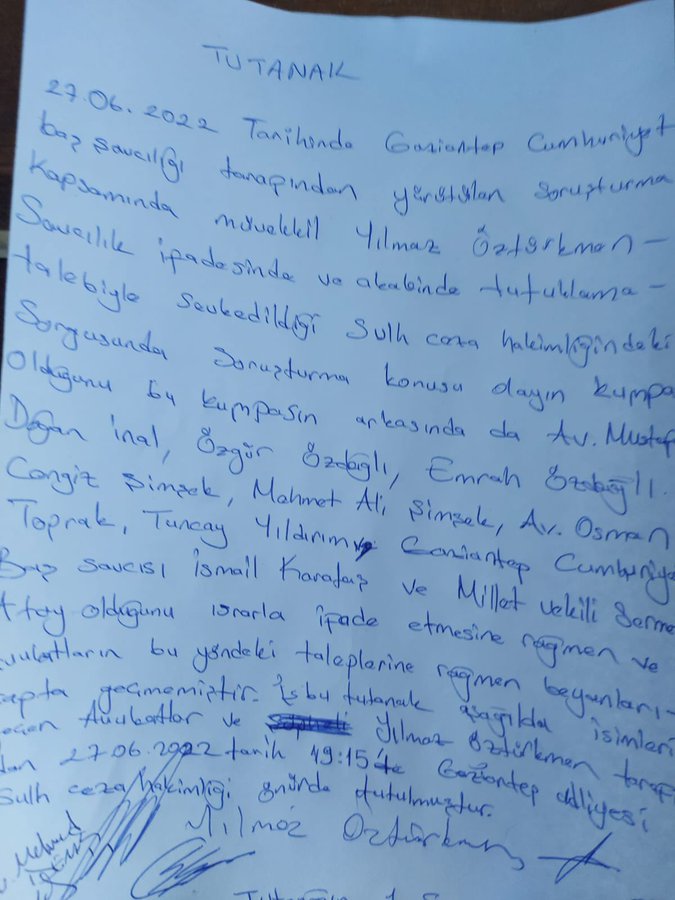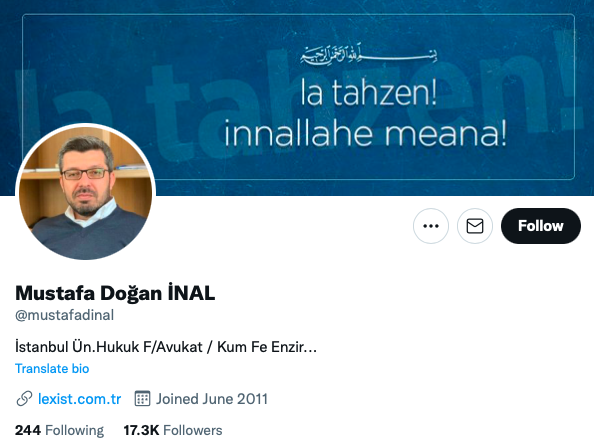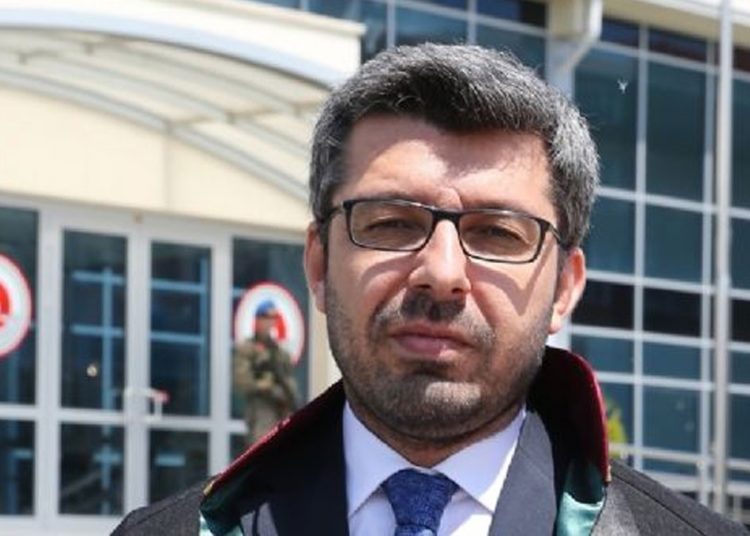Levent Kenez/Stockholm
A clash on June 20 in the southern city of Gaziantep between two members of an alleged organized crime group that is accused of manipulating the judiciary exposed a major scandal showing how courts in Turkey make decisions under instructions from the government.
A group member admitted in court that they had blackmailed businessmen who were tried on terrorism charges, that those who agreed to hand over money were released and those who refused to do so were sentenced in court. At the center of the accusations is Turkish President Recep Tayyip Erdoğan’s lawyer, who is accused of acting as a shadow justice minister.
While driving towards a village in the same vehicle as the Gaziantep governor, lawyer Mustafa Doğan İnal, a fixer who works closely with Erdoğan and has ties to a Turkish al-Qaeda group, was stopped by a relative, Yılmaz Öztürkmen, and his men. A brawl broke out after Öztürkmen’s men did not allow the vehicle to continue. Worried about violence, İnal had to return to Antep together with the governor.

Later, at the order of the governor, gendarmes detained the people who had blocked the road. Öztürkmen, who was taken to court, confessed he and İnal were blackmailing and threatening members of the Gülen movement, which the Erdoğan government has declared a terrorist organization, adding that those who did not pay were sentenced in court on trumped-up terrorism charges.
Öztürkmen also said Gaziantep Chief Public Prosecutor İsmail Karataş was also an accomplice. The prosecutor, who panicked at this confession, which included his boss, interrupted Öztürkmen’s statement and said, “I can’t put these names in the court records.” Despite the lawyers’ objections, the names were removed from Öztürkmen’s statement.

Öztürkmen’s lawyers then prepared a report saying that names of İnal and Karataş were excluded from the court documents. In the report Öztürkmen claimed that the members of the group were İnal, Özgür Özdağlı, Emrah Özdağlı, Cengiz Şimşek, Mehmet Ali Şimşek, attorney Osman Toprak, Tuncay Yıldırım, Gaziantep Chief Public Prosecutor Karataş and lawmaker Sermet Atay of Turkey’s far-right Nationalist Movement Party (MHP).
A lawyer for Öztürkmen told journalist Dinçer Gökçe that Öztürkmen had kept a record of all the dirty work he had done with his relative İnal and others.

“This blackmail has been going on for at least five or six years. Video narration of all blackmailed businessmen are archived by Öztürkmen. He keeps all these records in safe places, with whom he did what and how much money was taken from whom,” the lawyer said.
Meanwhile, on June 23 lawmaker Ali Haydar Hakverdi asked Interior Minister Süleyman Soylu about the incident in a parliamentary question. According to Hakverdi, the incident was not a simple roadblock. There was a gunfight, one person was injured and the ministry covered it up. Hakverdi also asked the minister for details of the blackmail and threats that Öztürkmen had confessed to in court.
Hakverdi’s written question has not yet been entered into the parliamentary record.
İnal, in a short statement on Twitter, said Hakverdi’s allegations were not true.
One day after the parliamentary question was publicized by the Turkish media, İnal applied to the court demanding that the news be removed. Ferah Yıldız, who is also Erdoğan’s lawyer, took on İnal’s case.
The request was accepted by an İstanbul court the same day, and access to scores of news links was blocked. It is currently not possible to read news reports about the allegations of blackmail and threats to members of the Gülen movement that İnal is accused of on websites published in Turkey.
Nordic Monitor previously identified İnal as the key operative manipulating high-profile cases in Turkey. The Turkish judiciary takes its cues from him and his team, which serve as a compass in politically motivated cases, especially those in which Erdoğan takes a special interest, such as defamation, the silencing of the critical media and corruption. He is well connected to Erdoğan’s office, family, and business associates and has cultivated close ties with senior figures in the Turkish judiciary, well beyond the limits of professional relationships.

Benefiting from his connections to Erdoğan, İnal has set up new firms and bought shares in other companies to pursue business interests in the energy and real estate sectors, two leading industries in which pro-government cronies make a huge amount of money in Turkey by means of political connections and kickback schemes.












